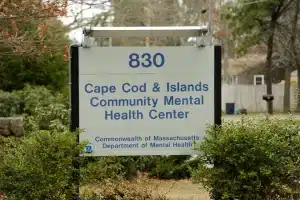Mental Health Facility Closing in MA; Opioid Use Disorder Toolkit in CT; New Teen Behavioral Health Unit at RI Hospital

Cape Cod’s only state-run mental health facility to close
Governor Healey’s 2026 financial budget plan is bringing about devastating changes in the mental health industry.
Recently, Pocasset Mental Health Center, also known as the Cape and Islands Community Mental Health Center, is headed for closure because of budget cuts. With the new financial plan causing the only state-operated hospital in Cape Cod to close and bringing about a 50% reduction in Department of Mental Health case managers, concerns from citizens are rising.
“Deep cuts to mental health services and our state’s hospitals would be incredibly harmful, at a time when those systems are already understaffed and overstretched,” said Andrew Farnitano, spokesperson for Raise Up Massachusetts, a community organization condemning many budget choices.
The Massachusetts Nurses Association and Service Employees International Union have also raised similar concerns over the impact of these budget cuts on the state’s most vulnerable members and the increased patient caseload that it could bring about.
According to the Massachusetts Governor, these budget cuts will pave the way for new investments that are meant to improve access to mental healthcare and strengthen the behavioral health workforce.
“We’re also investing in behavioral health with education and health and human services working together to make sure, for example, that young people can get the support that they need in schools,” said Governor Healey.
CT launches new toolkit to aid in long-term care for opioid-use disorder
Opioid use has had devastating effects on countless lives in recent years. Now, the Department of Mental Health and Addiction Services and the Department of Public Health in Connecticut are partnering to release a new toolkit called “Strategies for Supporting Residents with Opioid-Use Disorder in Long-Term Care.”
“With the opioid crisis impacting more individuals living in long-term care facilities, this toolkit delivers essential guidance to ensure facilities are prepared to support their residents living with OUD,” said DPH Commissioner Manisha Juthani, MD. “By prioritizing person-centered care, we can improve outcomes and foster recovery.”
Healthcentric Advisors, a non-profit healthcare quality improvement organization, has been helping DMHAS and DPH develop extensive educational content and provide implementation guidance and project management to create a successful toolkit.
The toolkit will be a significant step forward for treating opioid-use disorders and act as a guide for implementing trauma-informed and recovery-oriented care to long-term opioid users and help them tackle the challenges that they face daily. It will specifically hone in on evidence-based stigma and harm reduction, train staff to appropriately care for individuals suffering from opioid-use disorder, and focus on partnerships with community-based resources.
New teen behavioral health unit is underway at Newport Hospital
Newport Hospital is determined to improve adolescent mental health by constructing a new teen mental and behavioral unit. The Rhode Island hospital has already raised more than $5 million in donations supporting the project, which started in November 2024 and will take around a year to complete.
The eight-bed unit will focus on assessing and treating adolescents between the ages of 12 to 18 who are struggling with suicide, aggression, and other behavioral issues. The new unit is expected to serve at least 240 teens annually.
According to Jeffrey Gaines, MD, chief medical officer, the new unit will cater to anybody who is in a crisis and may be in danger of hurting themselves or others. “The inpatient level care is meant to be for short stays, ideally two weeks or less,” said Gaines. “The unit could also help reduce the number of kids who linger in emergency departments waiting for beds — sometimes for several days.”
This new unit falls under a series of efforts to manage the increased need for youth mental health help, especially following the pandemic. The new unit’s goals are to stabilize suffering patients and provide them with a safe and supportive environment while offering counseling, therapy, and short-term solution treatments.
“This is a milestone moment for Newport Hospital, but more importantly, for the kids and families in our community who need the level of care a dedicated behavioral health unit can provide,” said Carol Bazarsky, chair of the Newport Hospital Foundation Board of Trustees. “Philanthropy makes an incredible difference, and that is especially true at Newport Hospital.”
